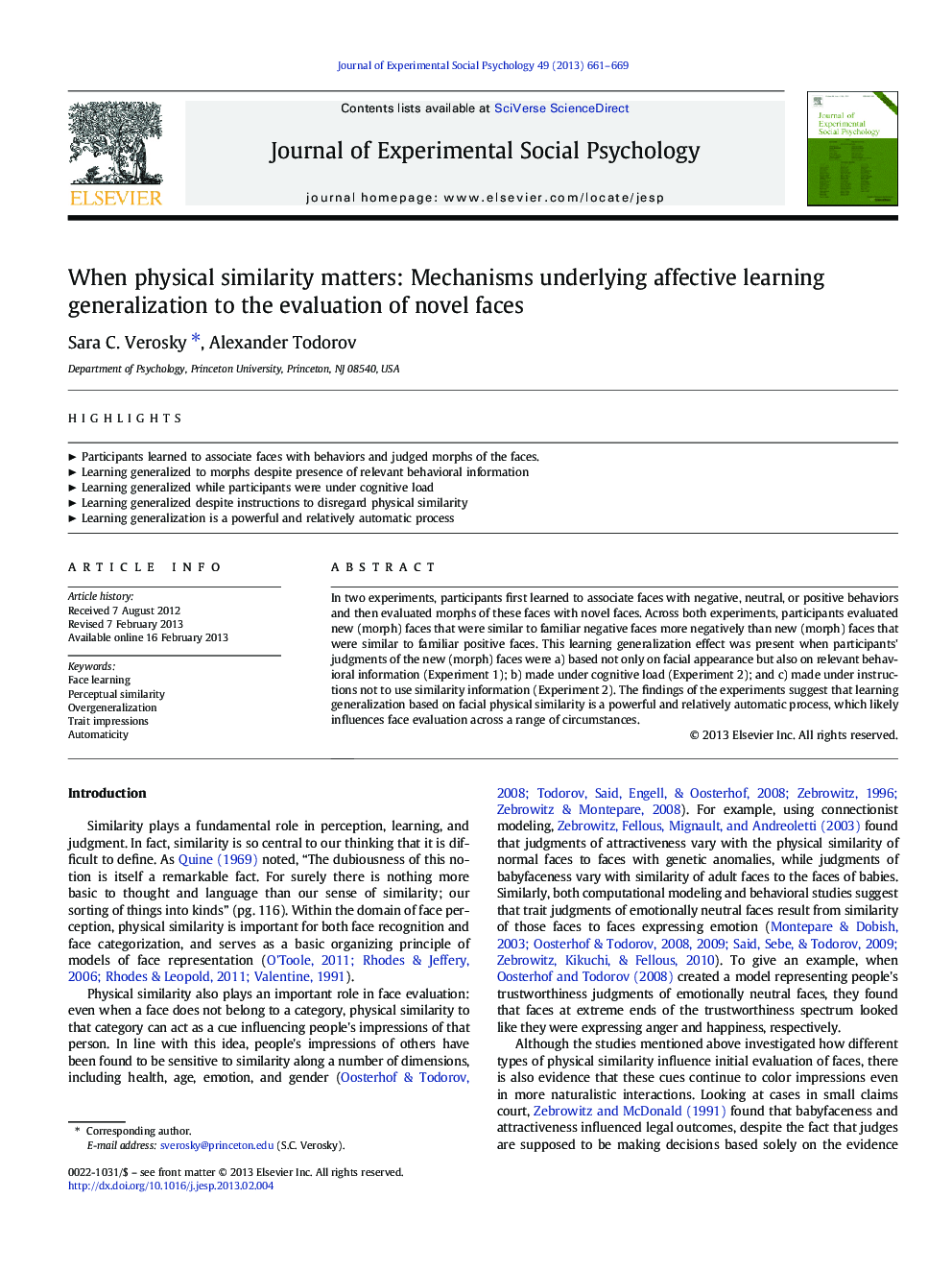| Article ID | Journal | Published Year | Pages | File Type |
|---|---|---|---|---|
| 947916 | Journal of Experimental Social Psychology | 2013 | 9 Pages |
In two experiments, participants first learned to associate faces with negative, neutral, or positive behaviors and then evaluated morphs of these faces with novel faces. Across both experiments, participants evaluated new (morph) faces that were similar to familiar negative faces more negatively than new (morph) faces that were similar to familiar positive faces. This learning generalization effect was present when participants' judgments of the new (morph) faces were a) based not only on facial appearance but also on relevant behavioral information (Experiment 1); b) made under cognitive load (Experiment 2); and c) made under instructions not to use similarity information (Experiment 2). The findings of the experiments suggest that learning generalization based on facial physical similarity is a powerful and relatively automatic process, which likely influences face evaluation across a range of circumstances.
► Participants learned to associate faces with behaviors and judged morphs of the faces. ► Learning generalized to morphs despite presence of relevant behavioral information ► Learning generalized while participants were under cognitive load ► Learning generalized despite instructions to disregard physical similarity ► Learning generalization is a powerful and relatively automatic process
